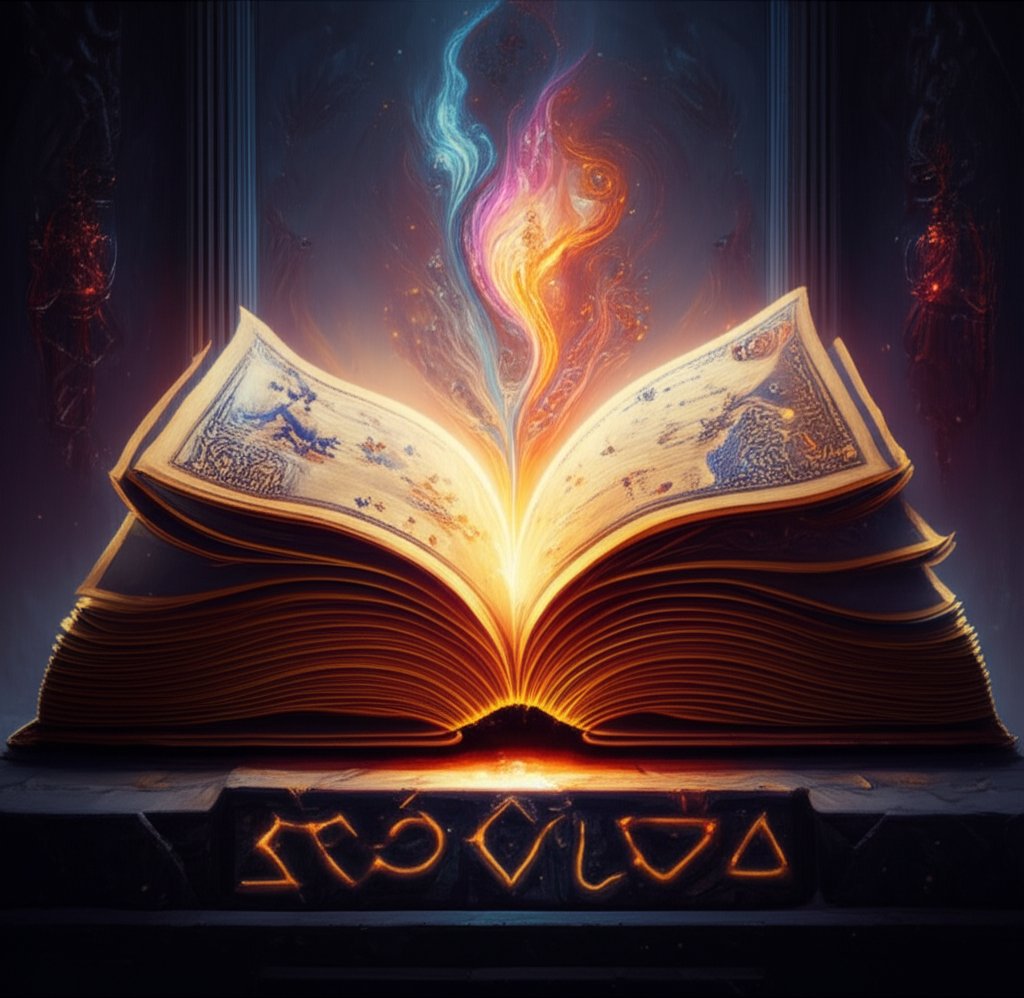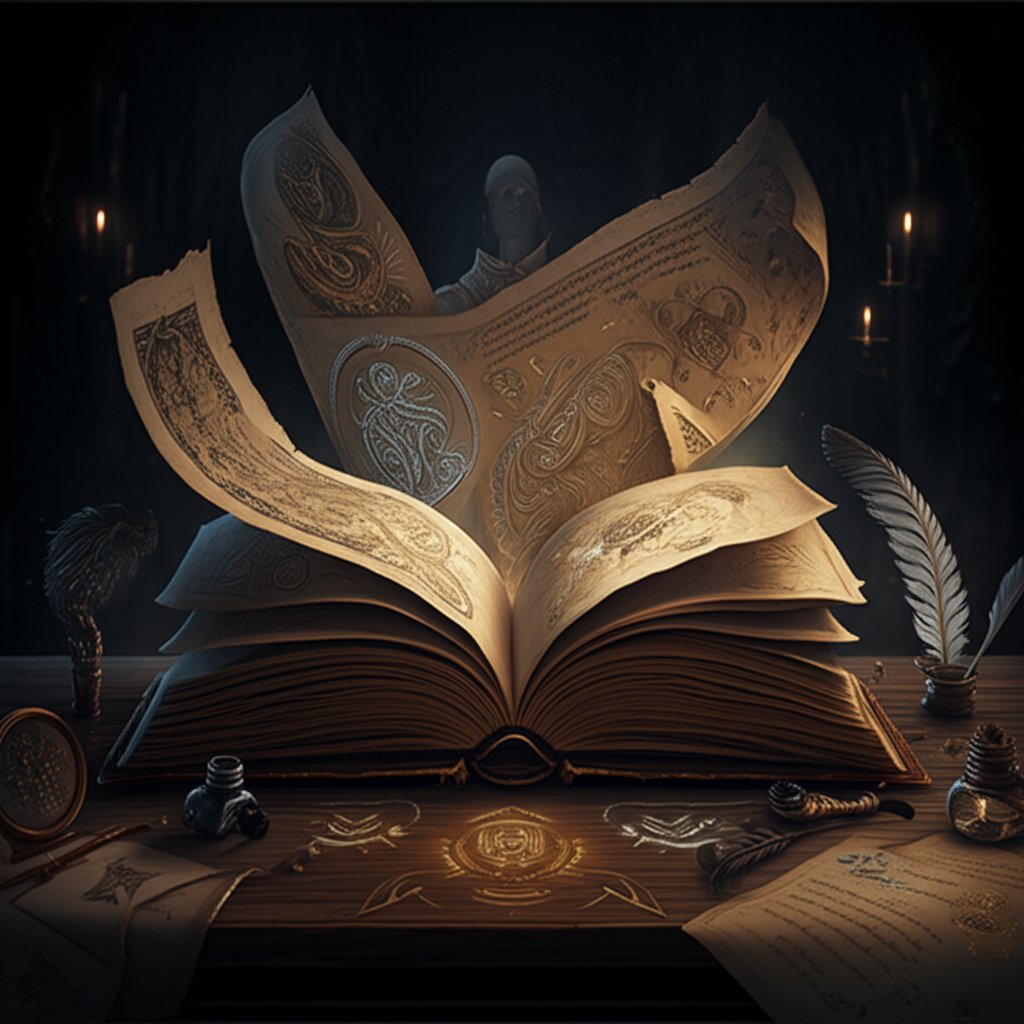Introduction to the God Name Generator
Ever struggled to invent a name that sounds worthy of a god? Whether you’re writing a fantasy novel, designing a video game, or building your next Dungeons & Dragons campaign, you’ll notice that naming a deity comes with unique challenges. How do you create a name that feels ancient, mighty, and memorable? That’s where a god name generator becomes an invaluable tool for creators of all kinds.
Why Names Matter for Deities and World-Builders
Imagine reading about a goddess of storms named “Emily” or a god of war called “Bob.” Sounds a little off, right? The names you give your deities shape how readers, players, or audiences perceive them. A great god name can instantly evoke power, mystery, and a sense of timelessness. It sets the tone for your entire world and can even hint at a character’s domain or mythological origin. For example, names like Okeanos (Greek god of water) or Kek (Egyptian god of night) carry centuries of resonance and intrigue.
The Challenge: Crafting Names That Feel Ancient and Fitting
When you try to invent your own god name ideas, it’s easy to fall into traps—making names too modern, too literal, or not distinctive enough. The best god names often:
- Sound unique but plausible within your world’s lore
- Reflect the domain or personality of the deity (think "Indra" for a storm god or "Nox" for a night goddess)
- Carry phonetic weight—names that crackle, boom, or whisper, depending on the god’s nature
- Borrow from or are inspired by real-world mythologies, lending authenticity and depth
But coming up with these on your own? That’s tough, even for seasoned writers. That’s why many turn to a god name generator for inspiration, variety, and a quick way to spark creativity.
What This Guide Will Cover
This comprehensive guide will help you master the art of divine naming, whether you’re seeking:
- Fantasy god names for epic novels or games
- TTRPG deity names that fit your campaign’s pantheon
- Mythological names rooted in real-world cultures
- Thematic names that evoke chaos, shadow, or cosmic power
- Practical tips for curating and refining generated names
We’ll explore how to use generators effectively, how to adapt names for different genders or domains, and how to infuse your creations with meaning and cultural resonance. By the end, you’ll have a toolkit full of methods and inspiration for generating god names that feel truly legendary.
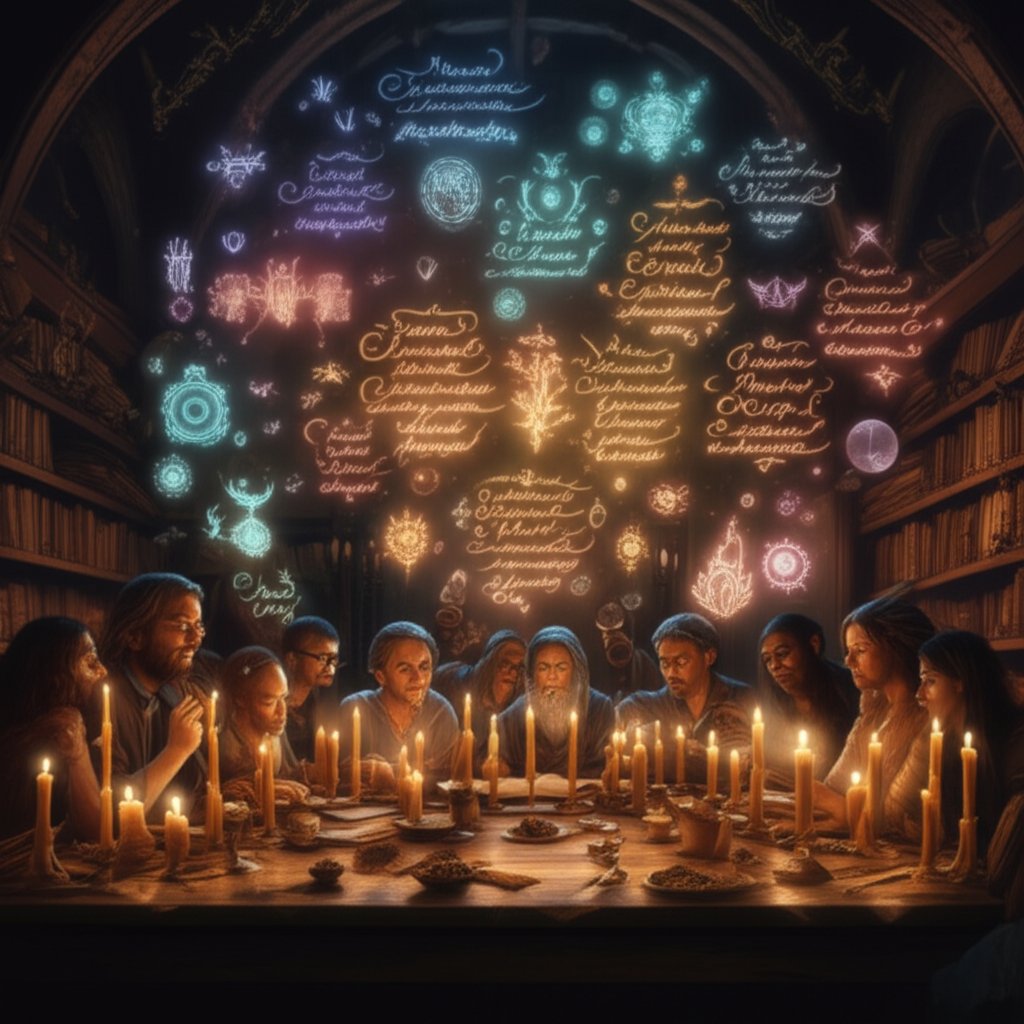
The Art of Naming Deities
When you hear a name like "Zeus" or "Tiamat," what images or feelings spring to mind? The truth is, the names you choose for your gods do more than just fill a spot in your world—they shape how your audience experiences every scene. Sounds complex? Let’s break down why the right name matters, and how you can harness the psychology and creativity behind powerful god names in your own projects.
How Sound and Structure Influence Perception
Ever notice how some names seem to command respect while others evoke mystery or even fear? This isn’t accidental. Studies in sound symbolism show that the phonetics and syllable patterns of a name can suggest size, strength, or personality traits—even before you know anything about the character. For example, names with hard consonants (like "Kronos" or "Thor") often feel forceful or authoritative, while those with softer sounds (like "Selene" or "Eir") can come across as gentle or enigmatic (SAGE Journals).
- Short, sharp names (e.g., "Nox," "Ra") tend to feel ancient and powerful.
- Longer, flowing names (e.g., "Amaterasu," "Quetzalcoatl") add a sense of grandeur or complexity.
- Repetitive sounds or alliteration (e.g., "Morrigan," "Manannan") make the name more memorable and mythic.
These sound-symbolic associations aren’t just for fun—they can help you instantly communicate a god’s domain, temperament, or role in your world’s lore.
Names as World-Building Tools
Imagine your story’s pantheon. Does each god’s name feel like it belongs to the same universe? Consistency in naming—whether through shared roots, suffixes, or phonetic themes—can tie your deities together and make your world more immersive. For instance, a pantheon with names like "Aelthor," "Valthir," and "Sythra" signals a shared linguistic heritage, while "Nyx," "Helios," and "Gaia" evoke a classical, mythic tone.
But it’s not just about style. The right name can:
- Set expectations for a god’s powers or domain ("Ignis" for fire, "Luna" for the moon)
- Influence how characters (and readers) react to the deity
- Provide subtle clues for plot or world-building (e.g., names that hint at ancient rivalries or forgotten origins)
Writers and game masters often use fantasy god names to reinforce themes—like chaos, order, or nature—by echoing those qualities in the sound and rhythm of the names themselves.
Striking the Balance: Unique Yet Archetypal
When you’re inventing names, it’s tempting to go wild with originality. But the most effective god names are both unique and archetypal—they feel fresh, but also timeless. Ask yourself: Would this name make sense if you heard it in a myth told around a campfire a thousand years ago?
| Quality | Tips for Achieving It |
|---|---|
| Authority | Use strong consonants, simple syllables, or names with historical resonance. |
| Mystery | Incorporate unusual vowel combinations, soft sounds, or unexpected endings. |
| Memorability | Leverage repetition, alliteration, or evocative root words. |
Remember, a well-chosen name doesn’t just label a god—it brings them to life, influencing everything from character interactions to the very fabric of your fantasy world.
Ready to build an entire pantheon that feels both cohesive and inspired? Next, we’ll explore step-by-step strategies for developing naming conventions that help your world stand out.
Crafting Pantheons for Your Fantasy World
Ever tried to invent a dozen god names for your own world, only to find they sound like they belong in different universes? When you’re building a pantheon, consistency and creativity go hand in hand. Whether you’re a novelist, game designer, or TTRPG master, a fantasy god name generator can spark ideas—but the real magic happens when you develop your own naming system. Let’s break down how to create a pantheon that feels unified, memorable, and uniquely yours.
Step-by-Step: Building Naming Conventions for Your Pantheon
Sounds daunting? It doesn’t have to be. Here’s a practical, bullet-pointed approach you can use to craft powerful and consistent names for your gods:
- Define Your World’s Linguistic Flavor
Ask yourself: What languages or cultures inspire your setting? Do your gods’ names echo ancient Greek, Norse, or something entirely new? Choose a few key sounds, letter combinations, or syllable patterns to use throughout your pantheon. For example, names like “Aelthir,” “Valkar,” and “Sythra” share a common melodic structure, making them feel related. - Choose Roots and Suffixes
Many mythologies use recurring roots or endings to tie deities together. You might use a root word for "light" (e.g., "Sol-") for sun deities, or a suffix like “-os” or “-thir” for a classical vibe. Try mixing and matching:- Root: "Drak-" (dragon) + Suffix: "-mir" = Drakmir
- Root: "Mor-" (shadow) + Suffix: "-an" = Moran
This technique works especially well if you want to use a fantasy name generator gods tool—just plug in your roots and see what combinations emerge.
- Establish Naming Rules for Different Races or Cultures
Imagine dwarven gods with hearty, earth-toned names like "Bhalgrum" or "Durnhild," versus dragon deities with sibilant, grand names like "Ssytharax" or "Zyraeth." Drawing from sources like dwarven name generators, you can create lists of prefixes and suffixes that fit each culture’s aesthetic. For instance:- Dwarven Pantheon: Prefixes like "Thar-", "Bhal-", "Dur-"; Suffixes like "-grim", "-dun", "-hild"
- Dragon Pantheon: Prefixes like "Zy-", "Ssy-", "Vor-"; Suffixes like "-rax", "-thar", "-mir"
This not only makes your world richer, but also helps players and readers instantly recognize the origin of each deity.
- Curate and Refine
Don’t be afraid to generate a long list, then whittle it down. Say each name out loud—does it fit the tone? Is it easy to pronounce? Does it evoke the right sense of power or mystery? Keep the best and tweak the rest. - Assign Domains and Symbolism
Once you have a list of names, assign each to a specific domain (e.g., war, harvest, storms) and consider what symbols or animals might be associated. This adds depth and makes each god more than just a name on a list.
Practical Example: Creating a Five-God Pantheon
Feeling stuck? Imagine you want a manageable pantheon for your first world. Many experts recommend starting with around five deities—enough for variety, but not so many you lose track (The Alpine DM):
- Sun God: Solthar
- Moon Goddess: Lunara
- Forge God (Dwarven): Bhaldun
- Dragon God of Wisdom: Zyraeth
- Goddess of Shadows: Morwyn
You’ll notice these names share roots, suffixes, or sound patterns, creating a sense of belonging within the same mythos.
Tips for Using Generators and Adapting Results
- Use a fantasy god name generator as a brainstorming tool, not a final answer. Mix, match, and modify the results to fit your world’s style.
- Keep a “naming rules” cheat sheet for each culture or race in your world. This helps you stay consistent as your pantheon grows.
- Don’t forget about meaning. Even if your names are invented, try to link them to your gods’ personalities, domains, or legends.
Ready to put your new pantheon to use in a campaign or story? Next, we’ll dive into how these names can become narrative hooks and plot devices, especially for Dungeons & Dragons and other RPGs.
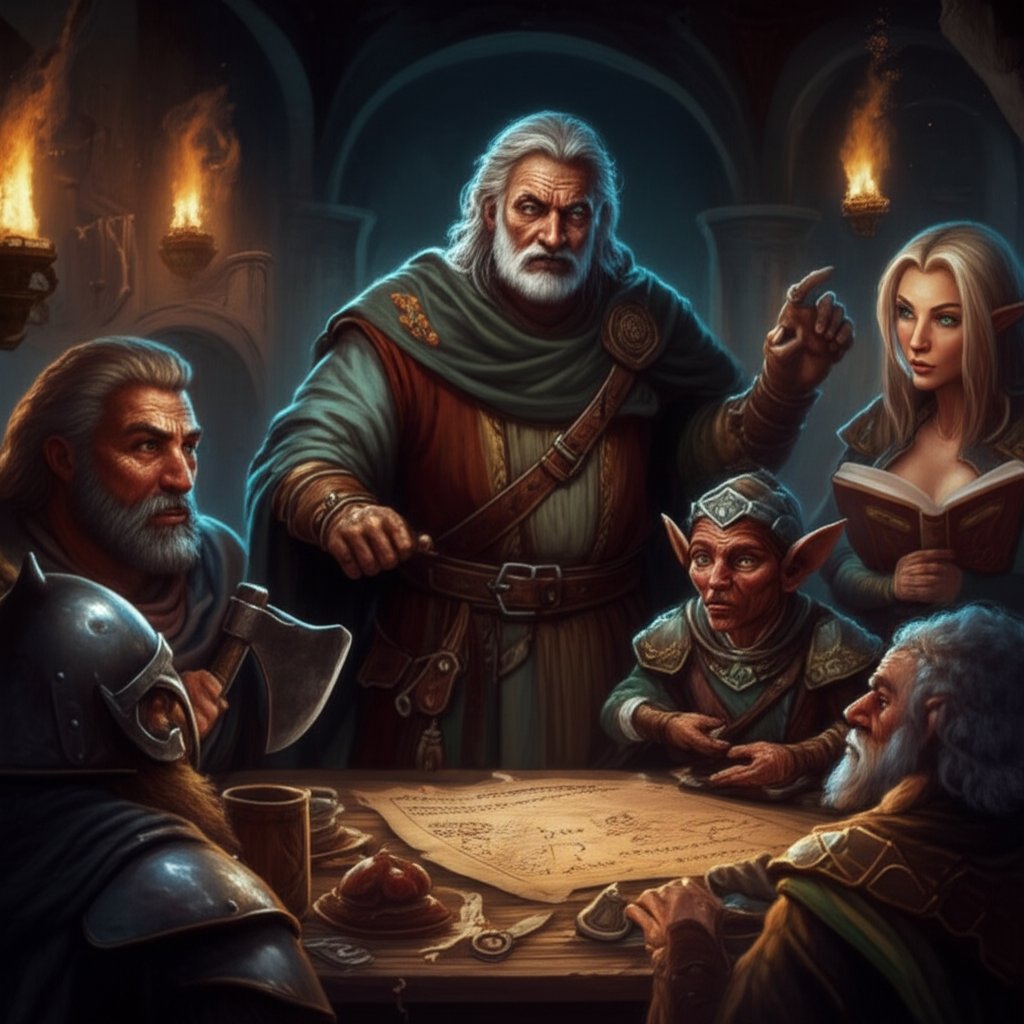
Naming Gods in Your Dungeons and Dragons Campaign
When you set out to create a Dungeons & Dragons campaign, you quickly realize that gods are more than just background lore—they can shape the very heart of your story. But how do you invent deity names that not only sound epic but also spark adventure hooks and hint at hidden truths? If you’ve ever stared at a blank page, unsure how to name your next god of storms or secrets, you’re not alone. Let’s explore how a dnd god name generator can help, and how to craft names that drive your narrative forward.
Why Deity Names Matter in D&D
Imagine a cleric praying to the goddess "Elyndra, Lady of the Veil" or a villain seeking the favor of "Tharvok, Lord of Ruin." Instantly, you have a sense of their domains, personalities, and the tone they bring to your world. In D&D, a god’s name isn’t just a label—it’s a clue. The right name can:
- Reveal the god’s domain or power (e.g., "Pyraxis" suggests fire, "Morthul" hints at death)
- Signal alignment—names with harsh, guttural sounds often feel more sinister, while melodic names tend to evoke benevolence
- Provide plot hooks for quests, conflicts, and mysteries (e.g., a lost artifact inscribed with a forgotten god’s name)
For Dungeon Masters, these names become seeds for stories—whether it’s a temple shrouded in legend or a prophecy tied to a deity’s return.
Generating Names: From Inspiration to Immersion
Sounds daunting? Here’s where a dnd god names generator comes in handy. These tools churn out names inspired by classic mythologies and D&D’s own multiverse, offering a quick way to brainstorm and break creative blocks. But the real magic happens when you adapt these names to fit your campaign’s unique flavor.
- Start with the Domain: Decide what your god represents—war, dreams, the sea, or something stranger. Use root words or sounds that evoke those themes.
- Mix and Modify: Don’t be afraid to tweak generated names. Change a letter, add a suffix, or combine two ideas. For example, “Mango” becomes “Ognam” by spelling it backward—a trick that can yield surprisingly mythic results (The Alpine DM).
- Say It Out Loud: Does the name roll off the tongue? Does it match the mood you want—ancient, mysterious, or fearsome?
Whether you’re inspired by a name like "Syntraen" (born from blending and reshaping a phrase) or "Visvang" (taken from a foreign word for fishing), the goal is to create something that feels at home in your world.
Names as Plot Hooks and Clues
Great D&D deity names do more than fill a roster—they can drive your campaign’s story. Here’s how:
- Hidden Lore: An ancient ruin may bear the sigil of a long-forgotten god, with the name itself hinting at the nature of the place or the secrets within.
- Divine Quests: A cleric’s vision might reveal a cryptic name, sending the party on a quest to uncover its meaning or prevent a prophecy.
- Alignment and Rivalries: Names can foreshadow relationships—gods with similar roots might be siblings or rivals, while opposing names suggest cosmic balance or conflict.
- Artifacts and Spells: Magic items or spells named after deities (“Helion’s Flame,” “Nyx’s Veil”) instantly gain gravitas and story potential.
Players love discovering the hidden connections between a god’s name and the mysteries they encounter. These names become shorthand for entire legends, beliefs, and plotlines.
Creating Unsettling and Cosmic Names
Want to add an eldritch or otherworldly vibe? Try these quick tips for generating unsettling god names:
- Use hard consonants and unexpected vowel pairings (e.g., “Vhulkrith,” “Zyothar”)
- Mix sibilant sounds (s, z, sh) for a serpentine or cosmic feel
- Borrow from real or constructed languages for a sense of the alien
- Combine unrelated syllables for a dissonant effect (“Xal’thune,” “Morguzar”)
These techniques are the backbone of any eldritch or cosmic god name generator, helping you create deities that feel like they exist beyond mortal comprehension.
Ready to draw even more inspiration for your divine names? In the next section, we’ll explore how real-world mythologies can enrich your pantheon and help your gods resonate with players on a deeper level.
Drawing Inspiration from Real World Mythology
When you’re searching for divine names that truly stand out, why not look to the world’s oldest stories? Across continents and centuries, cultures have crafted pantheons whose names echo with power, mystery, and deep-rooted symbolism. But how do you tap into those traditions without simply copying what’s already been done? And how can a god name generator help you create names that feel both authentic and original?
Why Mythological Roots Matter for God Names
Imagine a fantasy goddess named "Athena" or a storm god called "Raijin." Instantly, you sense their domain and gravitas, thanks to centuries of myth and storytelling. Drawing on real-world mythologies gives your deities built-in resonance, helping readers or players connect on a subconscious level. But it’s not just about borrowing—it's about understanding the patterns, sounds, and meanings that make these names memorable.
Comparing Naming Conventions Across Cultures
Let’s break down how different civilizations have approached god naming. You’ll notice that each culture uses distinct sounds, structures, and symbolic elements. Here’s a quick comparison to spark your creativity:
| Culture | Common Phonetic Elements | Example Structures | Iconic Names |
|---|---|---|---|
| Greek | Hard consonants, flowing vowels, -os/-a endings | Prefix + Domain Suffix (e.g., "Heli-os" for sun) | Zeus, Athena, Demeter, Hermes, Persephone |
| Egyptian | Repetition, guttural sounds, -et/-is/-ra endings | Short roots, often two or three syllables | Ra, Osiris, Isis, Anubis, Sekhmet |
| Aztec | Complex consonant clusters, X-/Tl- prefixes | Descriptive compounds (e.g., "Quetzal-coatl") | Quetzalcoatl, Tezcatlipoca, Huitzilopochtli |
| Chinese | Balanced tones, nature or virtue-based roots | Concept + Honorific (e.g., "Long Wang" for Dragon King) | Nuwa, Fuxi, Longmu, Jade Emperor, Guanyin |
Each row in this table is a goldmine for your next pantheon. For example, if you want a name that feels Greek, try pairing a familiar root (like "Pyro-" for fire) with a classical ending ("-demos," "-theos"). Or, for an Egyptian vibe, aim for short, strong syllables with repeating sounds ("Kek," "Bastet").
Using Generators to Capture Mythic Flavor
Modern greek god name generators and egyptian god name generators are designed to mimic these linguistic patterns, giving you a shortcut to names that feel at home in a specific tradition. For instance, a Greek generator might yield "Thalios" or "Eirenara," while an Egyptian tool could suggest "Setkara" or "Nefruset." These names aren’t just random—they’re built on the sounds and structures that define their cultures.
- Tip: Use a generator as a launchpad. Take the results and tweak them—combine two names, add a new suffix, or swap out a root for your deity’s domain.
- Mix and Match: Try blending elements from different mythologies for a unique, hybrid feel. For example, pair a Greek suffix with an Aztec root, or use a Chinese honorific with a fantasy concept.
Going Deeper: The Value of Cultural Authenticity
If you want your god names to carry real weight, consider the meanings behind them—not just the sound. Many cultures infuse their deities’ names with references to nature, virtues, or cosmic forces. For example, Chinese god names often combine a powerful concept (like "heaven" or "dragon") with a title or virtue, creating names that are both poetic and significant.
For those seeking names with deep resonance and cultural roots, tools like the Chinese Name Generator offer a unique advantage. Unlike simple random-powered tool draws language and tradition, ensuring that each name reflects-world meaning and context. naming your sky with a name "Celign" or of wisdom with name thatJadeenment." These aren’t just names—they’re stories waiting to be told.
Key Takeaway: The most memorable god names don’t just sound epic—they’re rooted in tradition, meaning, and cultural nuance. By studying world mythologies and using culturally aware generators, you can create deities that feel both timeless and unique.
Curious how to adapt these ideas for gods and goddesses of any gender or identity? The next section will show you how to tailor generated names for every divine role in your world.
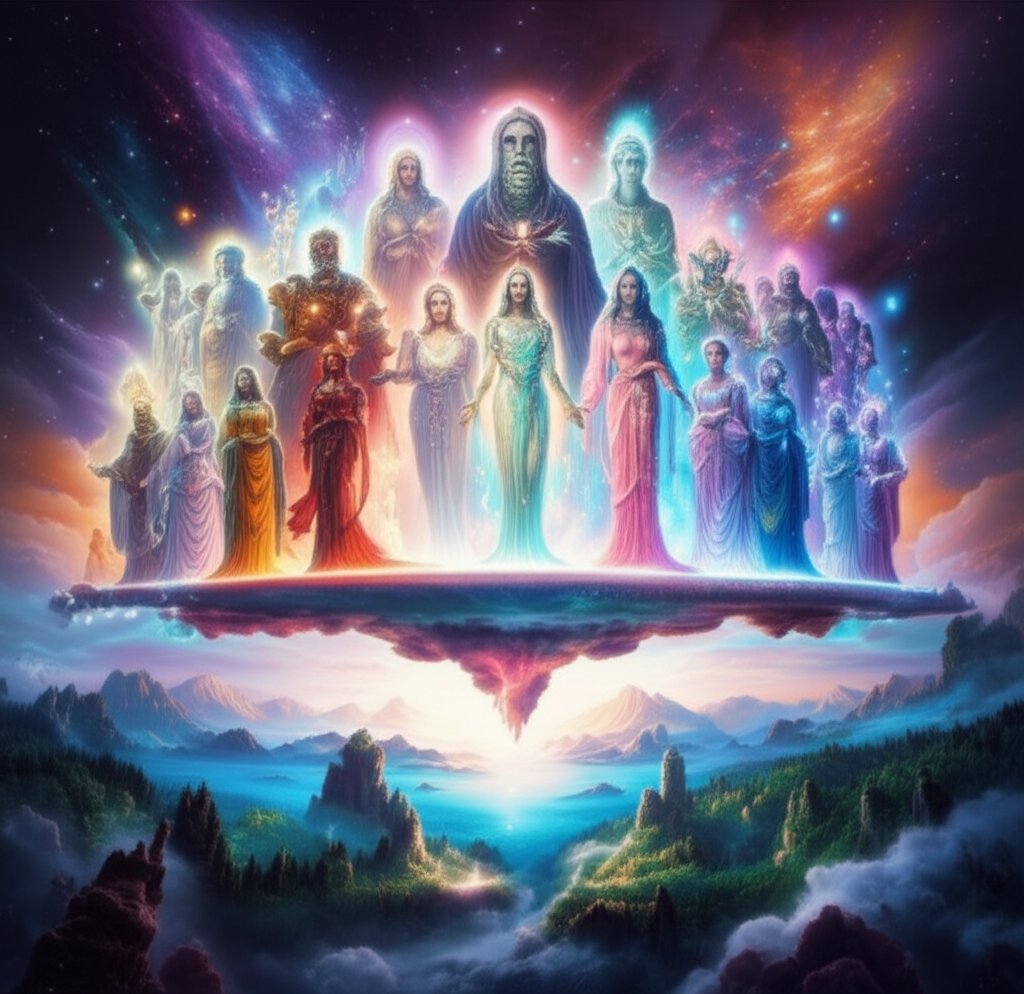
Generating Names for Both Gods and Goddesses
When you’re shaping the pantheon for your story or game, how do you ensure your deities reflect the full spectrum of gender and identity? It’s easy to default to masculine gods or feminine goddesses, but what about gender-neutral or non-binary deities, or even demi-gods who blur the lines? Sounds complex? Let’s break it down and explore practical ways to use a god and goddess name generator to create names that fit every divine role.
Why Gender Diversity Matters in Divine Naming
Imagine a world where every god sounds the same, or where only one type of deity gets a unique name. It quickly feels flat and uninspired. In real-world mythologies, you’ll find a rich variety: gods, goddesses, demi-gods, and even deities whose identities transcend the binary. Take inspiration from names like Dosojin (Japanese god of roads), Sjofn (Norse goddess of passion), or Indra (supreme ruler in Hindu lore). Each carries a different energy, and their names often reflect their gender, role, or unique story.
How to Use Generator Filters and Tweaks
Modern name generators usually let you filter by gender, making it easy to find masculine or feminine names. But what if you need something more fluid or non-traditional? Here’s how to tailor your results:
- Masculine Names: Select the "Male" filter or look for strong consonants and assertive endings. Examples: Kek (Egyptian god of night), Delling (Norse god of dawn).
- Feminine Names: Use the "Female" filter or seek softer sounds and lyrical endings. Examples: Cyhiraeth (Celtic goddess of streams), Hathor (Egyptian goddess of joy).
- Gender-Neutral/Non-Binary: Try the "Unisex" or "Neutral" option, or combine elements from both masculine and feminine names. Names like Aarya (meaning noble, used for both gods and goddesses) or Micah (Hebrew for "Who is like God?") work beautifully for any identity (FirstCry).
- Demi-Gods: For names that feel a step apart from full deities, consider shorter or more modern-sounding options, or those that blend traits from two parent gods. The demi god name generator approach often yields names that are familiar yet unique, like Riley or Jade.
Adapting Names for All Gender Identities
Want your pantheon to be truly inclusive? Here are some quick tips to adapt generated names for any gender or non-binary concept:
- Mix and Match: Take a traditionally masculine root and pair it with a feminine suffix, or vice versa. For example, "Arngrim" could become "Arngria" for a goddess, or "Arngrin" for a non-binary deity.
- Use Unisex Names: Names like Sage, Phoenix, or Zephyr are used for all genders in both modern and mythological contexts.
- Drop Gendered Endings: If a generated name ends in "-us" (often masculine), try changing it to "-a" (feminine) or "-en" (neutral) to fit your needs.
- Invent New Forms: Don’t be afraid to create your own endings or combine roots from different cultures—this is especially fitting for demi-gods or deities of transformation and change.
| Type | Example Names | How to Generate |
|---|---|---|
| Masculine | Delling, Indra, Caelus, Dosojin | Use "Male" filter; strong consonants |
| Feminine | Hathor, Cyhiraeth, Sjofn, Kaminar | Use "Female" filter; soft/lyrical endings |
| Gender-Neutral | Aarya, Micah, Phoenix, Sage | Use "Unisex" filter; blend elements |
| Demi-God | Riley, Jade, Manu, Rory | Shorter, hybrid, or modern names |
The goal is to match the name’s sound and meaning to your deity’s identity and role. By experimenting with filters, roots, and endings, you can fill your world with gods, goddesses, and demi-gods who feel as diverse and dynamic as the stories you want to tell.
Next up, we’ll dive into naming the darker side of divinity—gods of chaos, shadow, and the unknown—and how to craft names that send a shiver down the spine.
Creating Names for Gods of Chaos and Shadow
When you need a name that sends a chill down your reader’s spine or hints at unimaginable power, how do you capture that sense of darkness and chaos? Whether you’re building a villainous pantheon, designing an antagonist for your campaign, or just want a name that feels truly menacing, crafting dark god names is both an art and a science. Let’s break down what makes these names so effective—and how you can use techniques from an evil god name generator to create your own.
What Makes a Name Sound Dark or Evil?
Think about the gods of death, destruction, or betrayal from myth and fiction. Names like Seth (Egyptian god of chaos), Chernobog (Slavic god of misfortune), or Cthulhu (Lovecraftian cosmic horror) instantly evoke dread and mystery. But what do they have in common?
- Guttural vowel sounds – Names that use deep or harsh vowels (like "o," "u," or "a") feel heavier and more ominous. For example, Dokan or Mornorud.
- Hard consonants – "K," "G," "D," and "R" give a name a sense of power and finality. Consider Borkag or Jagorith.
- Sibilance – The "s," "z," or "sh" sounds can make a name feel serpentine, sinister, or otherworldly—think Seth or Satan.
- Dissonant syllable pairings – Unexpected combinations (like "-vuch," "-norud," or "-thune") create a sense of unease and unpredictability.
- Length and complexity – Longer names with multiple harsh syllables ("Mornorud," "Jagorith") often feel more ancient and forbidding.
Practical Tips: Building Your Own Menacing God Names
Ready to create your own god of shadows, chaos, or death? Here’s a bullet-pointed guide inspired by the best dark god names generators and real-world myth:
- Start with a dark root: Use syllables like "Mor-" (death), "Noct-" (night), "Vul-" (violence), or "Dra-" (dragon/shadow).
- Add a harsh or guttural ending: Suffixes like "-gor," "-ruk," "-vuch," or "-thul" create a sense of finality and dread.
- Combine for effect: Pair roots and endings to form names like "Morgor," "Nocthul," or "Dravuch." Don’t be afraid of extra syllables—"Jagorith" and "Mornorud" both use three or more.
- Use sibilant sounds for subtle menace: Names like "Ssytharax" or "Zyssoth" feel both alien and threatening.
- Borrow from myth and literature: Adapt names or elements from legendary evil deities—like "Chernobog," "Cronus," or "Loki"—by tweaking syllables to fit your world.
Exploring Related Themes: Death, Demons, and Eldritch Horror
Want to go even darker? Many dark god names generators specialize in themes like death, decay, or cosmic horror. For example:
- Death gods: Names often use "Mor-", "Necro-", or "Than-" roots (e.g., "Morwyn," "Necrolis").
- Demon gods: Look for sharp, jarring sounds and infernal overtones—"Alvuch," "Trigan," or "Rakshasas" (from Hindu myth).
- Eldritch/cosmic deities: Use unpredictable, almost unpronounceable combinations—"Cthulhu," "Xal’thune," or "Vhulkrith."
These approaches help set the tone for antagonists, apocalyptic threats, or the unknowable forces lurking beyond your world’s edge.
| Phonetic Element | Effect | Example Names |
|---|---|---|
| Guttural vowels | Weight, dread | Dokan, Mornorud, Borkag |
| Hard consonants | Power, aggression | Jagorith, Cronus, Trigan |
| Sibilance | Sinister, serpentine | Seth, Ssytharax, Satan |
| Dissonant pairings | Unease, unpredictability | Alvuch, Cthulhu, Nocthul |
By mixing and matching these techniques, you can build a roster of gods whose very names hint at their dark power and chaotic influence. And if you ever get stuck, an evil god name generator or dark god names generator can jumpstart your creativity with fresh, fearsome ideas.
As you continue crafting your divine cast, consider the meaning behind each name—because the most memorable antagonists aren’t just terrifying in sound, but in story as well. Next, we’ll dive into how to infuse your god names with deep, resonant meaning for even greater impact.
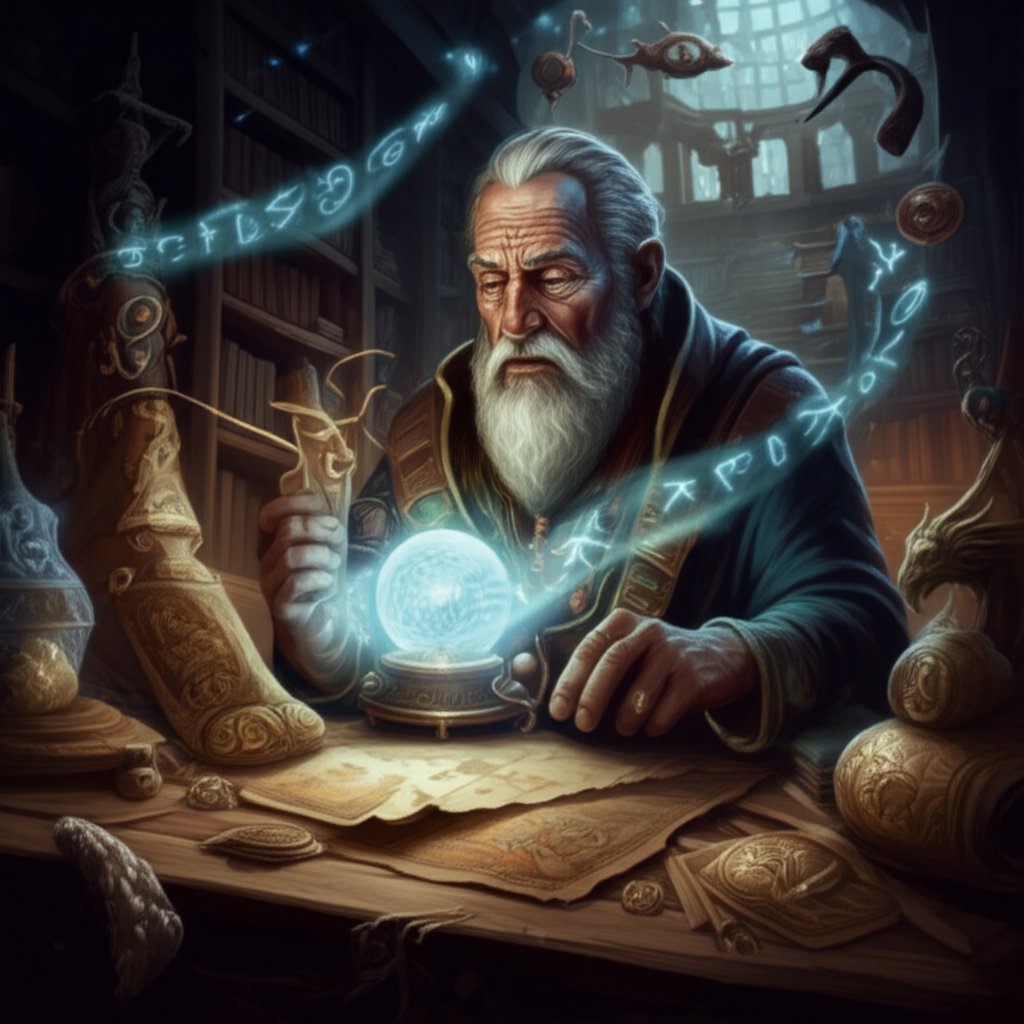
Finding God Names with Deep and Resonant Meanings
When you hear a name like "Aether" or "Anubis," does it spark a sense of wonder? Imagine if every god in your world carried a name packed with hidden lore or profound symbolism. That’s the difference between a name that’s just cool and one that’s truly meaningful. But how do you move beyond surface-level names and discover—or create—those with real depth? Let’s break down how to use a god name generator with meaning and some research strategies to ensure your divine names resonate, inspire, and even guide your world-building.
Why Meaning Matters in God Names
Sounds obvious, but names with built-in meaning do more than sound impressive—they give you instant story hooks, backstory, and emotional resonance. For example, the Greek god Poseidon means "husband of the earth," while Aditi in Hindu mythology means "boundless" or "freedom." These names aren’t just labels—they hint at domains, personalities, and even mythic destinies. When you use a meaningful god name, you’re embedding a piece of lore right in the name itself.
How to Seek or Construct Names with Built-In Lore
Ready to create names that feel ancient and significant? Here’s a step-by-step approach:
- Start with the Domain: Decide what your god represents—wisdom, storms, fertility, death, or something unique. This domain will guide your choice of root words or concepts.
- Research Etymology: Look up words in ancient or modern languages that relate to your deity’s domain. For example, "Aether" is Greek for "upper air" or "pure, fresh air," and "Anubis" may derive from a root meaning "to decay"—fitting for a god of the dead (Behind the Name).
- Combine Concepts: Mix two or more roots to create a compound name. For instance, an earth goddess might become "Terradite" (terra + -dite, echoing "Aphrodite").
- Use a Generator with Meaning Filters: Some advanced tools let you input domains, cultures, or attributes—so you get names that aren’t just random but are tailored to your needs. For example, you can select "Sea God," "Greek," and "Wisdom" to get a name that fits all three.
- Check for Cultural or Mythological Roots: Make sure your invented name doesn’t accidentally mean something odd in another language, or better yet, discover if it already exists in myth (sometimes the best names are hiding in plain sight!).
Examples of Meaningful God Names and Their Roots
| Name | Origin/Root | Meaning | Domain |
|---|---|---|---|
| Aether | Greek | "Upper air, pure air" | Sky, Atmosphere |
| Aditi | Sanskrit | "Boundless, freedom" | Cosmos, Motherhood |
| Anubis | Egyptian | "To decay" | Death, Embalming |
| Baihu | Chinese | "White tiger" | Autumn, West, Protection |
| Amaterasu | Japanese | "Shining over heaven" | Sun, Light |
| Bhaskara | Sanskrit | "Light maker" | Sun, Radiance |
Notice how each name tells a story or sets a tone before you even learn the mythology behind it.
Soft Spotlight: Harnessing Culturally Grounded Tools
Want to take your naming to the next level? Consider using a tool designed for cultural authenticity, like the Chinese Name Generator from OldWestHistory. Unlike basic randomizers, this generator draws on real Chinese language, myth, and philosophy, ensuring that each name is not only unique but also deeply meaningful. Imagine naming a god after the concept of "eternity," "dragon," or "heaven"—suddenly, your deity’s name becomes a creative spark for their entire legend. The tool lets you select gender, domain, and even style (traditional or modern), so you can match the name’s meaning to your character’s story and the world you’re building.
- AI-powered and context-aware: Generates names with authentic roots and matching bios.
- Gender-specific options: Perfect for gods, goddesses, or non-binary deities.
- Deep cultural resonance: Every name reflects ancient values, virtues, or cosmic themes—ideal for world-builders seeking more than just a cool sound.
Key Takeaway: The most meaningful god names aren’t just invented—they’re discovered, researched, and crafted. By combining etymology, mythology, and culturally grounded generators, you can create deities whose names echo with lore and inspire entire legends.
Once you’ve built a list of names with real meaning, how do you pick the one that fits your world—and stays memorable for your audience? In the next section, we’ll walk through a practical checklist for choosing the perfect divine name.
Choosing a Truly Memorable Name for Your Deity
You’ve brainstormed, generated, and researched—now you’re staring at a list of potential god names. How do you pick the one that will truly stand out in your world? Sounds overwhelming? Let’s break it down. Selecting unique god names isn’t just about what looks cool on paper; it’s about finding a name that echoes in the minds of your readers or players long after the story ends. Here’s a step-by-step approach to help you make the right choice.
Step 1: The ‘Say It Out Loud’ Test
When you say a name aloud, does it roll off the tongue or trip you up? This simple test reveals a lot about memorability and usability. Imagine your characters invoking this name in dialogue or your players shouting it during a dramatic scene. If it’s awkward or hard to pronounce, it may not stick.
- Practice saying each candidate name out loud several times.
- Ask friends or fellow creators to try as well—do they stumble or remember it easily?
- Listen for rhythm, flow, and emotional impact—does the name feel powerful, mysterious, or evocative?
Step 2: Shortlisting and First Impressions
Now, narrow down your list. Focus on names that feel both distinct and fitting for your deity’s domain. Remember, originality is key—a memorable god name should avoid clichés and blend seamlessly with your world’s style.
| Criteria | Questions to Ask |
|---|---|
| Originality | Does this name stand out from common mythological or fantasy names? |
| Domain Fit | Does the sound and meaning match your god’s sphere of influence? |
| Pronunciation | Is it easy for readers/players to say and remember? |
| Length | Is it too long to recall, or too short to feel epic? |
- Eliminate names that feel generic or don’t match your world’s tone.
- Keep those that evoke a strong image or emotion when spoken or read.
Step 3: Contextual Testing
Imagine your name in action. Place it in different scenarios—temple inscriptions, prophecies, dialogue, or even as part of a spell or artifact. Does it still fit? Does it inspire the right mood, whether awe, fear, or reverence?
- Write a short scene or sentence using each name (e.g., “In the shadow of Morwyn’s altar, the faithful gathered…”).
- Test the name alongside others in your pantheon—does it feel like part of the same mythos?
- Consider cultural and linguistic consistency, especially if your world draws inspiration from real-world traditions.
Step 4: Feedback and Final Selection
Don’t make the decision in a vacuum. Share your shortlist with trusted readers, players, or collaborators. Ask for honest impressions:
- Which names do they remember after a day or two?
- Do any names evoke unintended associations or confusion?
- Which name best captures the spirit of your deity and the tone of your project?
Blending Sound, Meaning, and Tone
The best god names are more than just unique—they’re memorable, meaningful, and perfectly matched to your world. By testing for sound, context, and emotional resonance, you’ll land on a name that not only stands out but also weaves seamlessly into your story’s tapestry.
Ready to put your chosen name to work? In the final chapter, we’ll wrap up with a call to action and inspire you to start building your own legendary pantheon.
Conclusion
When you reach the end of your creative journey, have you ever wondered if your deities truly stand apart? After exploring the ins and outs of the god name generator process, you now have a toolkit for building names that not only sound powerful but also resonate with meaning and cultural depth.
Why Use a God Name Generator?
Throughout this guide, you’ve seen that creating divine names is more than just stringing together cool syllables. It’s about blending sound, symbolism, and tradition to make your gods memorable. Whether you’re drawing on mythological roots, experimenting with linguistic patterns, or using advanced generators, the right name can:
- Set the tone for your entire world or campaign
- Inspire new stories, legends, and character arcs
- Reflect the unique domains, personalities, or origins of your deities
- Strengthen immersion for readers, players, or collaborators
And with so many tools at your disposal, you can create god names that feel ancient, mysterious, or even otherworldly—without spending hours stuck in a creative rut.
Blending Sound, Meaning, and Culture
The most unforgettable god names are those that balance unique sound, layered meaning, and authentic cultural resonance. Imagine a god of storms whose name echoes thunder, or a goddess of wisdom whose title hints at ancient knowledge. By combining phonetic techniques, mythological inspiration, and thoughtful use of generators, you can craft names that truly elevate your world-building.
For creators seeking even deeper authenticity, consider exploring culturally grounded tools like the Chinese Name Generator from OldWestHistory. Its AI-driven approach draws from real language and tradition, helping you generate names that carry both gravitas and significance—perfect for deities who deserve more than just a random label.
Ready to Build Your Pantheon?
So, what’s stopping you from bringing your own pantheon to life? Start experimenting with a god name generator, play with roots and endings, and let your imagination soar. The legends you create today could inspire stories, games, and worlds for years to come. Dive in, create boldly, and watch as your deities take on lives of their own—one epic name at a time.
God Name Generator FAQs
1. How does a god name generator work?
A god name generator uses linguistic patterns from various mythologies and fantasy traditions to create names that sound ancient, powerful, and fitting for deities. Many generators allow you to select domains, cultures, or gender, producing names that match your creative needs for stories, games, or RPG campaigns.
2. What makes a good god name for a fantasy world?
A good god name should evoke a sense of timelessness, power, and mystery. It often reflects the deity's domain or personality, fits the world's cultural context, and is memorable and easy to pronounce. Consistency across a pantheon and meaningful roots also help strengthen world-building.
3. Can I find culturally authentic god names using a generator?
Yes, some advanced generators, like the Chinese Name Generator from OldWestHistory, provide culturally authentic names by drawing from real language roots and traditions. These tools ensure names carry deep meaning and resonance, ideal for creators seeking authenticity.
4. How do I create names for gods of chaos or evil?
Names for chaotic or evil gods often use harsh consonants, guttural vowels, and dissonant syllables to evoke menace or mystery. Techniques include combining dark-sounding roots, using sibilance, and drawing inspiration from mythological and literary sources.
5. What tips help choose the best god name from generated options?
Test names by saying them aloud, check for memorability, fit with your world's tone, and ensure they match the deity's domain. Contextualize names in your story or campaign to see if they inspire the right mood. Shortlist favorites and get feedback from others before making a final choice.
